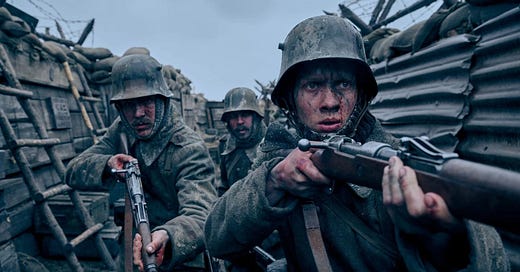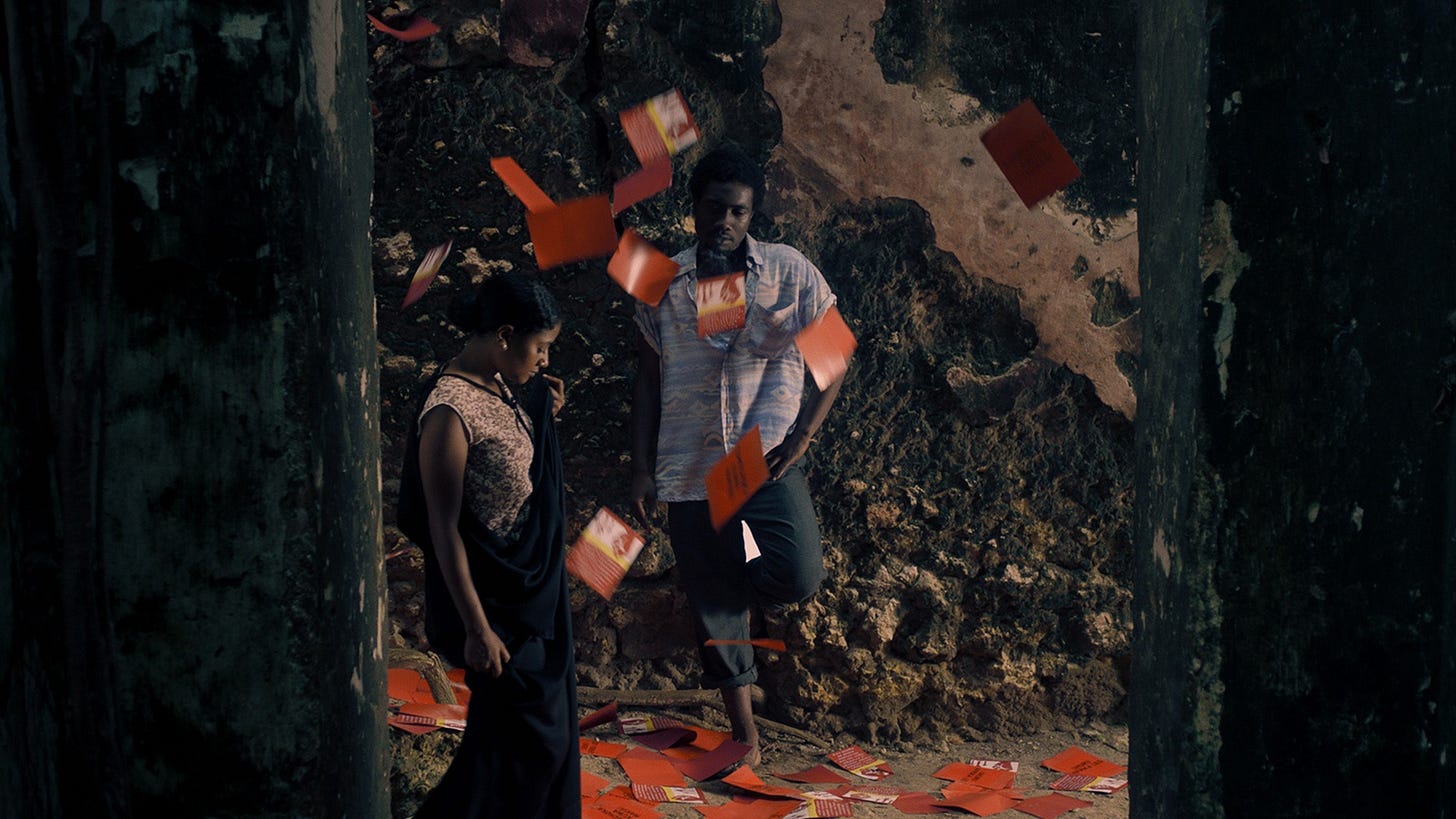International Films Edition: All Quiet on the Western Front, Kerr, and Tug of War
Three Academy Awards Contenders In A Rich International Field
Every year I try to watch more and more of the films in the Academy Awards’ Best International field. Last year, I managed to see 25 films. This year, I’m likely to surpass that number. My goal, currently, is to watch half of the field before the Oscars. Attending Karlovy Film Festival in the Czech Republic, TIFF, and Chicago International Film Festival made the prospect easier. And so has Virginia Film Festival, where I ticked a few more titles off my list.
In fact, with my last three watches: All Quiet on the Western Front, Kerr, and Tug of War—I just matched my high of last year with 25 films watched (I have screeners for at least nine more international films, so at a minimum, I’ll be doing three more of these types of rundowns). But here’s a piece on my three most recent viewings. Enjoy!
All Quiet on the Western Front
There’s a reason why every thirty years or so German author Erich Maria Remarque’s seminal anti-war novel All Quiet on the Western Front graces the silver screen: It’s nearly impossible to do a bad adaptation of it. Because most high schools and most grammar schools feature the novel on their required reading lists, most people are fully aware of the broad beats of the story. The ubiquity of that general knowledge, however, might be why we haven’t seen a major re-interpretation of the book since 1979 (that one starred Richard Thomas and Ernest Borgnine). Surprisingly, no German director has ever made a cinematic version of this very German story, until now.
Edward Berger’s iteration, streaming on Netflix, is gnarly and aching picture whereby every stench can be smelled and shell blast is felt. Newcomer Felix Kammerer portrays the film’s protagonist Paul, a young kid swept up by German nationalism to enlist with his school friends for World War I. On Kammerer’s hollowed visage the viewer can acutely demark his disintegration from naïve youth to broken soul. Through Paul’s eyes we witness the perils of trench warfare — the senseless deaths, the despicable weapons and the mental anguish — and we become as disillusioned as him. A potent Albrecht Schuch as Paul’s mentor Kat greatly helps in carving this descent. Berger also installs an additional storyline involving Daniel Brühl as a government official negotiating an end to the war (which works to varying degrees). While the VFX can be wonky in this adaptation, the compositions and lighting, recalling 1917 and Westfront 1918, are tremendous in their depth and scope. In every shot is the moral weight of war, and in this adaptation there is a real sense of the horrors that can occur.
Kerr
Tayfun Pirselimoglu’s Kerr is an odd little film. Turkey’s submission to the Academy Awards is a film noir told through dry, deadpan humor and drama heightened to oddball effect. In it, Can (Erdem Senocak) witnesses a murder in an unnamed small town that happens to be quarantined due to a pack of rabid dogs rampaging through its streets, a crisis that allows the police to keep an eye on him. Can isn’t your prototypical noir lead. His hangdog mien and passivity makes him a depressive figure navigating a kind of purgatory. Oddly, there is also a paranormal element to the story: Throughout the town are holes that seem to lead to an unknowable abyss. At times, Kerr feels a story Kafka would’ve been proud to write (funnily enough, the film is based on Pirselimoglu’s own novel).
There are plenty of peculiar figures: A menacing, taciturn killer (Riza Akin) roaming bombed out buildings and the estranged, opaque-tempered wife of the murder victim (Jale Arikan), is the noir tainted version of a femme fatale are just a sampling. Even so, the challenge with Kerr is the deliberate pacing, somber mood and purposeful slippage, which confounds more than tantalizes. The muted colors, which I’m usually not a fan of, actually work here because Pirselimoglu uses the diffused hues to make certain tones pop. Those components makes Kerr an acquired taste, and one that probably requires a couple go rounds before you can fully appreciate its unique sensibilities.
Tug of War
Standing as Tanzania’s submission to the Academy Awards (its only the second submission in the country’s entire history) Amil Shivji’s Tug of War is an arresting anti-colonialist period piece adapted from Adam Shafi’s same-titled Swahili novel. Gudrun Columbus Mwanyika plays Denge, a Mswahili revolutionary fighting for Zanzibar’s independence from British colonial rule during the 1950s. He falls for a runaway Indian-Zanzibari bride named Yasmin (Ikhlas Gafur Vora) to form a beguiling story of love and rebellion.
Tug of War is a picture rendered with visual flair: shots slow to a crawl as Mwanyika, an actor with immense charisma, does his best Andre Holland impression, by making eyes with Yasmin as cigarette smoke sensually climbs from his lips. Vibrant uses of red further enraptures the frame, while touches of light jazz and suave club settings soundtrack scenes of critical political drama. Mwanyika and Vora give invigorating performances that actualize their characters’ longing, desires and steamy attractions to unforgettable ends.






Thank you for these continuing rundowns of your international film viewing - it’s been so helpful for getting things on my radar! I’m really eager to check out Kerr now - I’ve really enjoyed the recent Turkish cinema I’ve seen. And I’m very sad I missed Tug of War when it played at the Seattle International Film Festival back in April - I’ll have to look for a way to see it as soon as I can.